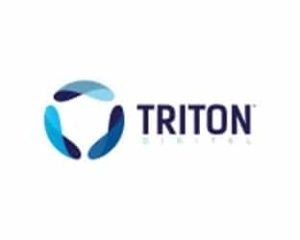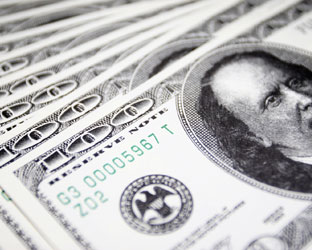Just because they didn’t want to own radio stations anymore doesn’t mean they don’t see the continued value of audio content delivery to listeners across the globe.
In a pre-market announcement made Wednesday (10/17), The E.W. Scripps Company revealed that it is purchasing Triton, a top tech provider serving the audio media industry, for $150 million.
Known for its digital audio technology and measurement services, Triton will be looked upon by Scripps to help advance its strategies “for near- and long-term value creation.”
Triton powers or measures streaming music and podcasting for such radio broadcasting companies as Cumulus Media, Entercom and iHeartMedia. It also works with NPR and the two streaming audio leaders, Spotify and Pandora, which SiriusXM is acquiring. Internationally, Triton works with Madrid-based giant Grupo PRISA and in late August expanded its relationship with one of the most important radio broadcasting companies in Mexico, Grupo Acir.
These companies benefit from Triton’s ability to delivery live and on-demand audio streams — and, importantly, the insertion of advertisements into those streams.
Triton’s data and measurement service is recognized as the currency by which publishers sell digital audio advertising, Scripps says.
Financial highlights include:
Scripps will be financing its purchase of Triton with cash on hand. No doubt the divestment of all of its radio stations will help providing the dollars needed to acquire Triton, which is projected to see 2018 revenue of roughly $40 million and EBITDA of roughly $14 million-$16 million.
For $47 million, SummitMedia made it known to the U.S. broadcasting industry that it aims to play ball. It purchased 19 stations in four markets from The E.W. Scripps Co. — a move that will allow Summit to grow yet will not significantly transform the operation.
This followed the widely expected August 2018 acquisition of Scripps’ Boise, Idaho and Tucson, Ariz., stations by Lotus Communications for $8 million.
Scripps’ sell-off started in June, when Scripps agreed to sell the station to local media operator Griffin Communications for $12.5 million. This was followed by a July announcement that it will sell its two Milwaukee radio stations to Good Karma Brands for $16 million.
With $83.5 million taken in from the sale of its radio division, Scripps must still dive into its piggy bank for $66.5 million in additional funds to take on Triton in a deal with a revenue multiple of about 3.7x and an EBITDA multiple of about 9x.
As it is a stock acquisition, there is no step-up in the assets for tax purposes.
In prepared comments, Scripps President/CEO Adam Symson said the acquisition is consistent with the company’s growth strategies and operating performance goals. “Triton positions Scripps well to expand its role in the fast-growing global digital audio marketplace. Triton’s efficient business model, multiple growing revenue streams, competitive advantages and expanding international footprint made this an attractive opportunity.”
Still, the purchase of additional TV stations “remains our No. 1 M&A priority,” with the goal of enhancing Scripps’ national scale and in-market depth for its Local Media portfolio. Perhaps it has no choice, as Gray Television and Raycom Media appear to be on track for a successful merger as Tribune Media is rumored to be of high interest to former Clear Channel Board of Directors member Tom Hicks — the man associated with private equity firm Hicks, Muse, Tate & Furst, which until May 2005 was a major stakeholder in the company now in debtor-in-possession status and known as iHeartMedia.
For Scripps, Triton’s addition to its National Media portfolio “complements our strategy of owning growth businesses that capitalize on the evolving habits of media consumers and furthers our commitment to margin expansion,” Symson said.
The global digital audio marketplace is projected to grow to $14.8 billion in 2022, according to Statista, as consumers increasingly turn toward streaming audio services.
The industry growth comes as a result of the ubiquity of smartphones, the popularity of connected cars and the explosive growth of smart speakers in homes.
Triton has two lines of business:
• Measurement: Triton’s measurement technology platform is the standard in the digital audio marketplace. Triton’s metrics are the currency through which agencies and brands buy digital audio advertising from streaming and on-demand audio companies.
• Infrastructure: Triton provides its clients with hosting and advertising infrastructure to deliver digital audio streams with data-powered dynamic ad insertion to listeners worldwide.
“Since its inception, Triton has partnered with the largest and most successful audio companies across the nation and around the world to support the growth of the streaming audio ecosystem,” said Triton co-founder and CEO Neal Schore. “Joining Scripps, a company known for its focus on the future of media, will support our continued innovation and will strengthen the products and services we offer to our clients here in the U.S. and as we continue our expansion across the globe.”
Schore brings more than 26 years of experience in media, including having served as the chairman of Westwood One.
Schore and his veteran management team will continue to lead Triton.
The transaction is set to close before year end. Moelis & Company served as financial advisor to Triton for the transaction.
The sale of Triton for $150 million marks a $35 million haircut from what Triton originally hoped to achieve from its sale. On Feb. 13, one of the world’s top spoken word audio on-demand platforms made a major play for one of the globe’s biggest streaming audio providers.
In a headline-grabbing story attracting attention in both North America and the U.K., Audioboom offered to purchase Triton Digital for $185 million in an all-cash deal.
Three months later, the transaction was cancelled. Shaky finances at Audioboom are largely believed to have cratered the deal.





